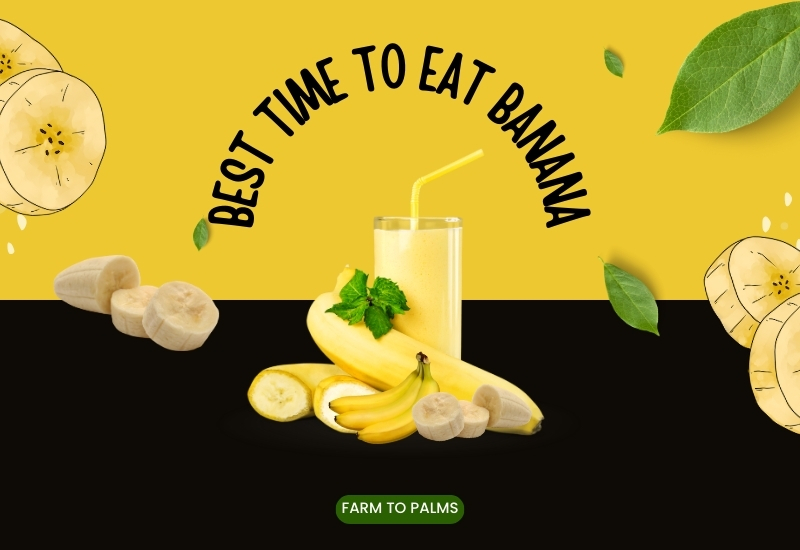The best time to eat bananas is about 1-2 hours after a meal and in the evening, when the banana can maximize its effect in stimulating the digestive system to function. Ripe bananas are an affordable, easy-to-eat fruit that is diverse in nutrition and helps maintain good health. B bananas are a “miraculous fruit” because they enhance immunity, prevent cancer, and improve physical health.
It is not an exaggeration to say that bananas are an “all-around” food because they are delicious and provide many health benefits, making them one of the healthiest fruits available today.
Bananas are a source of potassium, magnesium, and fiber. Additionally, this fruit contains tryptophan (an amino acid that plays a significant role in sleep, headache control, and bowel inflammation), vitamin B, iron, and vitamin B6.
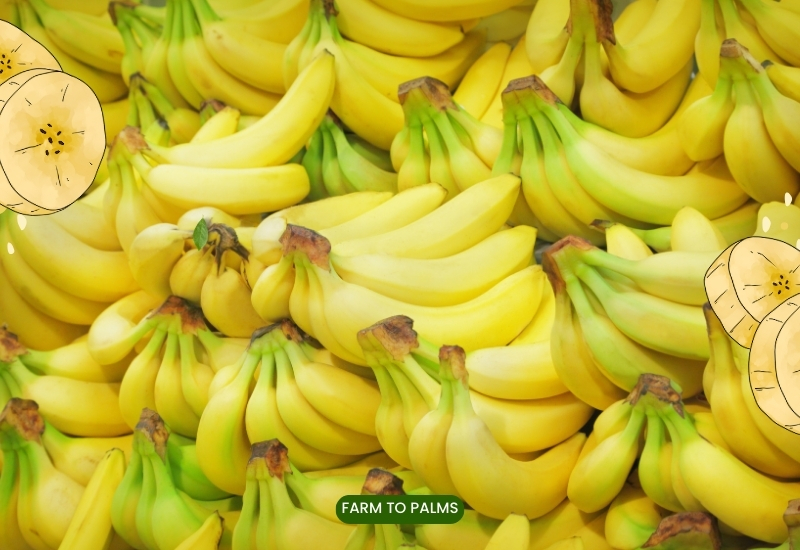
Furthermore, since they contain 25% of the sugar needed for bodily functions, bananas are seen as a very effective source of energy boost.
Therefore, eating bananas can help stabilize arterial pressure, reduce excess fat, control blood pressure, improve digestion, supplement vitamins, help reduce fatigue, and lower the risk of anemia…
However, like other foods, bananas are only effective if consumed at the right time.
What is the best time of day to eat bananas?
Many people eat bananas at any time of day because they consider them nutritious. Although bananas are rich in potassium, fiber, magnesium, vitamin B6, and vitamin C, suitable for health, you should not eat them when your stomach is empty.
The reason is that the magnesium and potassium in bananas can cause an imbalance in the cardiovascular system, leading to bloating and discomfort in the body. Therefore, bananas should only be eaten after a meal.
You should also avoid eating ripe bananas for breakfast or when you need to concentrate because the serotonin in ripe bananas can cause sleepiness and affect work quality.

According to nutrition experts, the best time of day to eat bananas is about 1-2 hours after a meal. At this time, the fruit will maximize its effect in stimulating the digestive system.
Additionally, you can eat bananas in the evening. Since bananas contain tryptophan, an amino acid that stimulates the production of the hormone melatonin, bananas can help you sleep better and more deeply.
Moreover, for those who often suffer from night cramps, eating a banana before bedtime can alleviate this condition. The high potassium and magnesium levels in bananas can promote and balance electrolytes in the body, effectively preventing muscle cramps.
Nutritional value of bananas
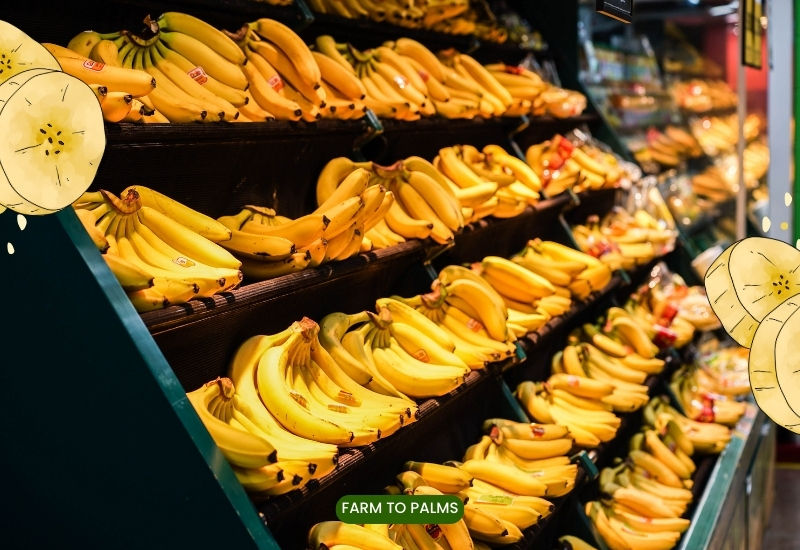
Eating just a few ripe bananas can instantly supply the body with hundreds of calories, making them a valuable food source for people engaged in heavy physical labor, athletes, and sportspeople who need a lot of glucose in their blood.
When heavy labor is extended and consumes much energy, the body must mobilize blood sugar to supply the muscles. In these cases, the glucose from the ripe bananas consumed will be quickly absorbed into the blood, replenishing the body’s depleted sugar levels and helping workers recover their strength quickly.
Bananas are also rich in minerals (calcium, phosphorus, iron, especially potassium) and vitamins (0.12mg carotene, 0.04mg vitamin B1, 0.05mg vitamin B2, 0.7mg vitamin P6, 6mg vitamin C…), which are essential for the body.
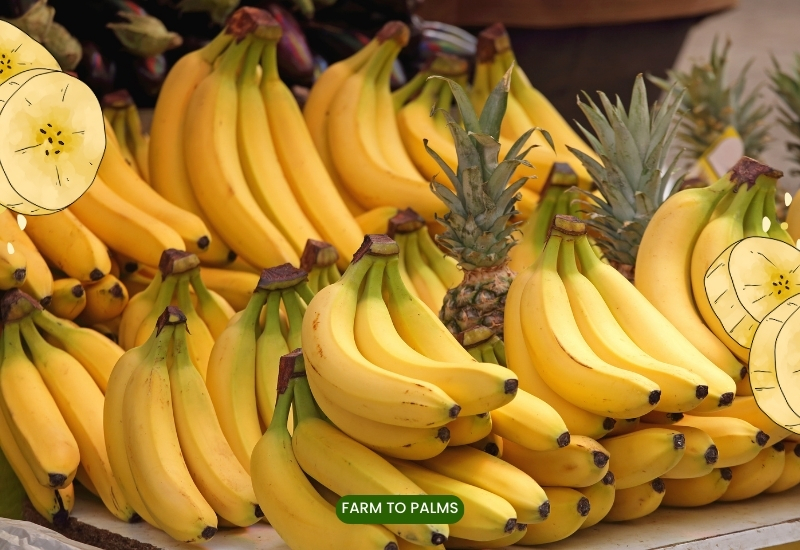
There are many kinds of bananas in our country, such as Lady Finger bananas, western bananas, Plantains, honey bananas, seeded bananas, and leaf bananas…, among which the Lady Finger banana is the tastiest and most nutritious. Regarding nutritional value, 100g of ripe Lady Finger bananas contain:
- 74 g of water.
- 1.5 g of protein.
- 0.4 g of organic acid.
- 22.4 g of carbohydrates.
- 0.8 g of cellulose.
- We are providing 100 calories.
That surpasses other sweet fruits in energy provision (100g of oranges provide 43 calories, ripe papaya provides 36 calories, lychee offers 49 calories, and sapodilla provides 43 calories…).
This type of fruit is also suitable for people with liver diseases and those suffering from high blood pressure. Lady Finger bananas are an excellent remedy for lowering blood pressure without side effects.
What is the best time to feed bananas to children?

Bananas are a nutritious food that is very good for children. However, parents should only allow children to eat up to 2 bananas daily to help maintain a bright and smooth skin complexion and promote a healthy digestive system.
The best time to add bananas to a child’s diet is after lunch, and they should not be eaten on an empty stomach or in the evening. The reason is that bananas contain high levels of potassium, magnesium, and vitamin C, which can adversely affect stomach and heart health if consumed during these times.
Moreover, under normal conditions, eating bananas provides fiber, which helps keep the bowels regular, supports the digestive system, and is beneficial for health. However, feeding bananas to a constipated child can worsen the situation rather than improve it, possibly leading to more severe constipation.
It would help if you did not let your child eat too many bananas, and it’s especially advised not to give them bananas when they are suffering from diarrhea. This is because the fiber and oligosaccharides in bananas can exacerbate the condition.
Although bananas have low-calorie content, consuming them in large quantities can lead to weight gain. The starch content in unripe green bananas turns into sugar as they ripen, so the calories you get from ripe bananas come from sugar. Overconsumption makes it difficult for the body to control blood sugar levels.
Eating two 100g bananas means energy intake equivalent to eating a rice bowl. Therefore, you still risk gaining weight if you skip eating rice and consume many of these sweet fruits.
How many ripe bananas should one eat to be enough?
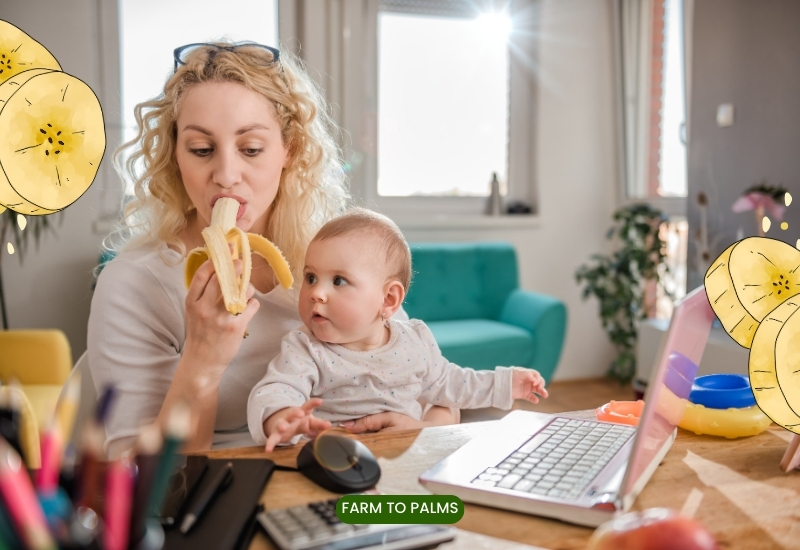
According to nutrition experts, consuming more than 2 bananas equals over 300 calories. Therefore, if no other fruits are eaten during the day, eating at most 2 bananas is advisable.
However, bananas should not be eaten additionally if other fruits have been consumed, such as watermelon (which can contain sugar levels up to about 15% and is very rich in potassium). Not to mention that bananas are high in potassium, a mineral not good for the kidneys.
The United States Department of Agriculture recommends the following daily banana intake: 2 bananas for men, 2 bananas for women under 30, and women over 30 should reduce their consumption to 1.5 bananas per day.
The 5 Best Groups of People Who Should Avoid Bananas

People with Diabetes
Ripe bananas are highly nutritious and are a good food for all ages. However, if you are dealing with type 2 diabetes, you should avoid ripe bananas as they can raise your blood sugar levels.
People with Kidney Failure or Glomerulonephritis
If blood tests show high potassium levels, you should not eat bananas because they contain a lot of potassium. Eating too many can increase potassium concentration in your blood, leading to irregular heartbeat, nausea, and slower pulse, which can exacerbate your condition.
People with Stomach and Colonic Pain
For those with a history of stomach or colonic pain, it is essential not to eat bananas on an empty stomach as it can cause discomfort or abdominal pain.
Experts suggest that people with stomach pain who want to eat bananas should do so when complete because the bananas can protect and neutralize stomach acid.
People with Constipation or Diarrhea
Many believe that eating bananas can help ease bowel movements, so some people with constipation frequently consume them. However, bananas fail to resolve constipation and may make it worse.
Additionally, nutrition experts advise against eating ripe bananas for those suffering from diarrhea because the soft fiber and oligosaccharides meant to smooth bowel movements can aggravate the condition.
People Needing Alertness
Eating bananas can help you fall asleep more quickly, but if you need to stay alert, you should avoid them since bananas contain tryptophan, an amino acid that our body cannot synthesize. The carbohydrates in bananas can prevent other amino acids our body produces from entering the brain, allowing tryptophan to enter instead and produce serotonin. Serotonin can make you feel sleepy.
Swing by Farm to Palms supermarket to pick fresh, nutritious bananas and various other fruits! Shopping at Farm to Palms nourishes your health daily and supports local farmers.

